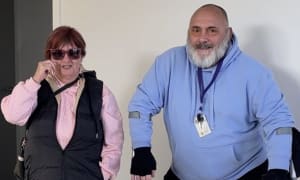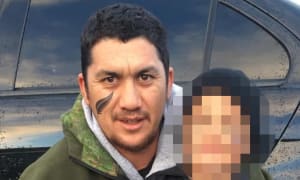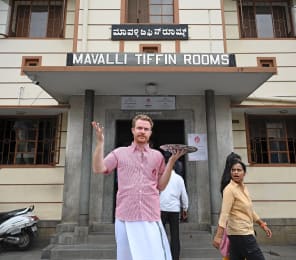by Claire Trevett, NZ Herald
Kiri Allan has spoken about the guilt and shame she felt after the night that led to her quitting politics, saying it was an “intense evening” and she made decisions she will regret for a lifetime.
It has been six months since the night Allan crashed into a parked car on Evans Bay Parade and ended up at the police station charged with careless driving and refusing to accompany police.
Her resignation as Minister of Justice and then as an MP followed.
That is still before the courts, but for the first time she has spoken to The Herald about the events of that night, what led up to it and how she has been doing since then.
It was soon after she had returned to work to deal with a change in Labour’s justice policies after a mental health break following a split from her partner Mani Dunlop.
“I found myself back at the Beehive. I remember being there and asking myself what the heck was I doing there?
“There had been some areas at work that I just couldn’t reconcile with myself, I think maybe that was the straw that broke the camel’s back, but I couldn’t understand what I was doing back at work and there were so many areas of life that were unravelling.
“I got to that point where I had decided I wanted to take my life that evening and had a very clear plan and went to execute that plan and commenced that process.
“And after I’d started that process, I’d had a few beers, I was in quite an erratic state of mind and I made that decision to drive.
“And it’s one I’ll regret forever.”
She was heading to somebody’s house.
“I was seeking probably solace in just some people . . . just given the state I was in. But I made that decision to drive.”
It was raining, she crashed and people immediately recognised her — some media getting alerted to it.
“It was a pretty intense evening.
You make a series of decisions — I made a series of decisions. You regret them for a lifetime.”
Next month she will be in court on the charges of careless use of a motor vehicle and refusing to accompany police.
She was also given an infringement notice for a excess breath-alcohol level of between 250 and 400 micrograms .
That looming court case means she cannot yet talk too much about the specifics of that night after the crash.
The charges she faces are relatively minor. She says a guilty plea would have been a lot easier — a matter of fines and with no court appearance required.
However, she has already said that the refusal to accompany police was because she had insisted on being able to seek legal counsel before doing so.
She believed her experience had shown there was a grey area around the right to legal counsel when somebody was arrested, and at what point that should be available.
Allan does not try to blame either her mental health struggles or other people for what happened that night or leading up to it.
She says she made the decisions and they were not good ones.
“Do I recognise the Kiri Allan that was in that state then? Yes, I do.
Is it necessarily the person that I am now? No.
A large percentage of the population have mental health issues and it’s about managing those.
“If I look at how my mental health may have impacted on the way I operated, well, it was my responsibility to manage that aspect of my life and I didn’t do that very well.
“As a consequence, in part that led to a whole range of decisions and decision-making that I made that was poor, and things I deeply regret if I’m frank.
“That’s been a big part of the last however-many months — just coming to terms with what happens when you don’t take care of yourself.”
She starts to tear up.
“Geez, I didn’t think I’d get emotional. The impacts those decisions had on a whole range of people and issues.
And you feel a lot of guilt for that, you feel a lot of shame.
“And it’s a process you have to work through and realising when you get to that position in your life there’s nobody else that can take responsibility but you. I regret not doing that in the way that I should have.”
We are sitting in a bay in Whakamārama, north of Tauranga. It is where Allan came after that night to start to try to heal again.
It looks out over her maunga, Mauao (Mt Maunganui) and her family’s island, Motuhoa.
Each day, Allan would sit on a small jetty at high tide and watch the maunga and the sea. It is her ūkaipō: Her home place, the place that nurtures her.
“I stayed with family, spent time with family, in those environments that just allowed me to take a pause — be quiet and reflect.”
She does not remember much of the days immediately afterwards.
“They say that’s a trauma response; I don’t know. I do remember a lot of the internal emotional response, if you will, but I don’t remember necessarily the things that happened. But there was an incredible amount of shame and guilt.
“I think those were the overarching emotions I really had to work through, and it wasn’t a quick journey. But I made the intentional decision to just take the time. Take the time to reflect on what had led to those circumstances. Take the time to work out how to come back to yourself.”
She has also made the apologies she thought she owed.
“To many people, if I’m frank. There were those who were in your team, in your crew. Those things have a massive impact and we were very close to an election.
“There were the constituents and the people you work closely with. We were in the middle of a cyclone recovery.
“There’s your broader family and those people that carry you through, even your hapū and your iwi.
“You’ve let a lot of people down, people that had faith in you . . . so there’s been a lot of apologies.”
Allan has since based herself in Whakatāne to be with her daughter and start to build a new life for herself.
She has often put her personal life out in public — warts and all.
This included her battle with cervical cancer — last week she celebrated being two years cancer-free — to her recent diagnosis of ADHD, post-traumatic stress disorder and dysregulated emotions.
In 2022, she spoke publicly about her experience with conversion therapy and her religious upbringing, famously talking about the attempts to “pray away the gay”.
She was also open about her struggles with mental health long before it all came to a head on that day six months ago, and has posted raw posts on social media about the loneliness and hopelessness she had felt.
She does not regret being as open as she has been.
“My whole ethos is that if my life can serve as an example, or people can take away from my mistakes or anything, then I kind of feel like I’ve got an obligation to share those things.
“Particularly because there aren’t a lot of people who look like me, sound like me, that have these profiles.
“So therefore, use them for good, not evil — mistakes included.”










0 comment
JOIN THE CONVERSATION
Read and post comments with a
Newsroom Pro subscription.
Subscribe now to start a free
28-day trial.